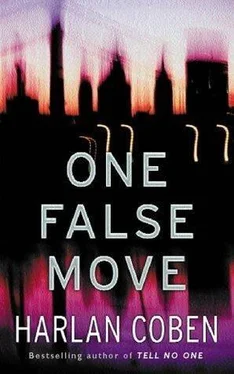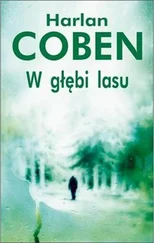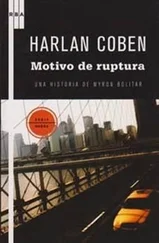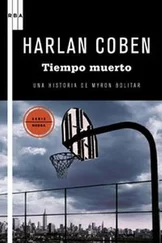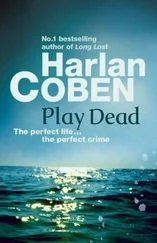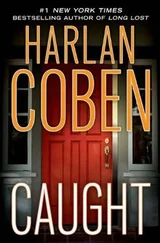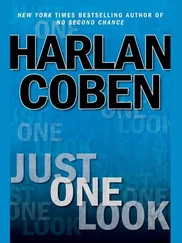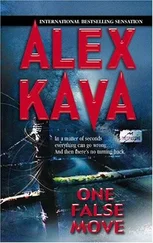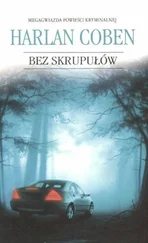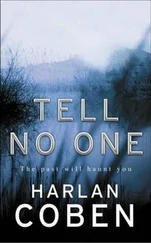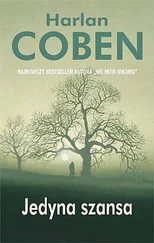Myron stayed where he was for a moment. Detective Eli Wickner had hung out in the same spot since before the days Myron had frequented this field. Wickner’s Throne. People greeted him here. They came up and slapped his back and shook his hand; Myron half expected them to kiss his ring. Wickner was beaming now. At home. In paradise. In the place where he was still a big man.
Time to change that.
Myron found a parking spot a block away. He hopped out of the car and approached. His feet crunched the gravel. He traveled back to a time when he walked upon this same surface with soft kid cleats. Myron had been a good Little League player – no, he’d been a great player – until the age of eleven. It’d been right here, on Field Two. He’d led the league in home runs and seemed on the verge of breaking the all-time Livingston American League Little League record. He needed to hit two more homers with four games left. Twelve-year-old Joey Davito was pitching. Davito threw hard and with no control. The first pitch hit Myron square on the forehead, right under the brim of the helmet. Myron went down. He remembered blinking when he landed on his back. He remembered looking up into the glare of the sun. He remembered seeing the face of his coach, Mr. Farley. And then his father was there. Dad blinked back tears and scooped him up in his strong arms, gently cradling Myron’s head with his large hand. He’d gone to the hospital, but there was no lasting damage. At least not physical. But after that Myron had never been able to stop from bailing out on an inside pitch. Baseball was never the same to him. The game had hurt him, had lost its innocence. He stopped playing for good a year later. There were half a dozen guys with Wickner. They all wore baseball caps sitting high and straight, no breaks in the brims, like you see with the kids. White T-shirts were stretched across bellies that resembled swallowed bowling balls. Bodies by Budweiser. They leaned against the fence, elbows draped over the top like they were taking a Sunday ride in a car. They commented on the kids, inspecting them, dissecting their games, predicting their futures – as though their opinions mattered a rat’s ass.
There is a lot of pain in Little League. Much has been written in recent years criticizing the pushy Little League parents – deservedly so – but the namby-pamby, politically correct, everybody equal, semi-New Age alternative was not much better. A kid hits a weak grounder. Disappointed, he sighs and walks toward first. He is thrown out by a mile and sulks straight to the dugout. The New Age coach yells, «Good hustle!» But of course it wasn’t good hustle. So what message are you sending? The parents pretend that winning is irrelevant, that the best player on the team should not get more playing time or a better batting position than the worst. But the problem with all this – besides the obvious fact that it’s a lie – is that the kids are not fooled. Kids aren’t dumb. They know that they are being patronized with all this «as long as he’s having fun» talk. And they resent it.
So the pain remains. It probably would always be there.
Several people recognized Myron. They tapped their neighbors’ shoulders and pointed. There he is. Myron Bolitar. The greatest basketball player this town ever produced. Would have been a top pro if… If. Fate. The knee. Myron Bolitar. Half legend, half a warning to today’s youth. The athletic equivalent to the smashed-up car they used to demonstrate the dangers of drunk driving.
Myron headed straight for the men along the backstop. Livingston fans. The same guys went to all the football games and basketball games and baseball games. Some were nice. Some were blowhards. All of them recognized Myron. They greeted him warmly. Detective Wickner stayed silent, his eyes glued to the field, studying the play with a little too much intensity, especially since it was between innings.
Myron tapped Wickner on the shoulder.
«Hello, Detective.»
Wickner turned slowly. He’d always had these piercing gray eyes, but right now they were heavily tinged with red. Conjunctivitis maybe. Or allergies. Or booze. Your choice. His skin was tan to the point of rawhide. He wore a yellow collared shirt with a little zipper in the front. The zipper was down. He had on a thick gold chain. New probably. Something to jazz up retirement. It didn’t work on him.
Wickner mustered up a smile. «You’re old enough to call me Eli now, Myron.»
Myron tried it. «How are you, Eli?»
«Not bad, Myron. Retirement’s treating me good. I fish a lot. How about yourself? Saw you try that comeback. Sorry it didn’t work out.»
«Thanks,» Myron said.
«You still living at your folks»?»
«No, I’m in the city now.»
«So what brings you out this way? Visiting the family?»
Myron shook his head. «I wanted to talk to you.»
They drifted about ten feet from the entourage. No one followed, their body language working as a force field.
«What about?» Wickner asked.
«An old case.»
«A police case?»
Myron looked at him steadily. «Yes.»
«And what case would that be?»
«The death of Elizabeth Bradford.»
To Wickner’s credit, he skipped the surprise act. He took the baseball cap off his head and smoothed down the gray flyaways. Then he put the cap back on. «What do you want to know?»
«The bribe,» Myron said. «Did the Bradfords pay you off in a lump sum, or did they set up a more long-term payout with interest and stuff?»
Wickner took the blow but stayed upright. There was a quiver on the right side of his mouth like he was fighting back tears. «I don’t much like your attitude, son.»
«Tough.» Myron knew that his only chance here was a direct, no-barred frontal assault; dancing around or subtle interrogation would get him squat. «You’ve got two choices, Eli. Choice one, you tell me what really happened to Elizabeth Bradford and I try to keep your name out of it. Choice two, I start screaming to the papers about a police cover-up and destroy your reputation.» Myron gestured to the field. «By the time I’m done with you, you’ll be lucky to hang out in the Eli Wickner Urinal.»
Wickner turned away. Myron could see his shoulders rising and falling with the labored breaths. «I don’t know what you’re talking about.»
Myron hesitated a beat. Then he kept his voice soft. «What happened to you, Eli?»
«What?»
«I used to look up to you,» Myron said. «I used to care what you thought.»
The words struck home. Wickner’s shoulders began to hitch a bit. He kept his face low. Myron waited. Wickner finally turned to face him. The rawhide skin looked drier now, sapped, more brittle. He was working up to saying something. Myron gave him space and waited.
From behind him Myron felt a large hand squeeze his shoulder.
«There a problem here?»
Myron spun around. The hand belonged to Chief of Detectives Roy Pomeranz, the musclehead who used to be Wickner’s partner. Pomeranz wore a white T-shirt and white shorts that rode so high it looked like someone was giving him a power wedgie. He still had the he-man physique, but he was totally bald now, his head completely smooth as though waxed.
«Get your hand off my shoulder,» Myron said.
Pomeranz ignored the request. «Everything okay here?»
Wickner spoke up. «We were just talking, Roy.»
«Talking about what?»
Myron handled that one. «About you.»
Big smile. «Oh?»
Myron pointed. «We were just saying that if you got a hoop earring, you’d be the spitting image of Mr. Clean.»
Pomeranz’s smile vanished.
Myron lowered his voice. «I’ll tell you one more time. Move your hand, or I’ll break it in three places.» Note the three-places reference. Specific threats were always the best. He’d learned that from Win.
Читать дальше
